Usman Khawaja
1422 runs at 41.82, 2 hundreds, 6 fifties, HS: 232
Khawaja started emphatically, with 141 in the Ashes opener in Birmingham, the first Test match of the cycle. He finished as the leading run-getter of the series, helping the visitors retain the urn. His returns tailed off thereafter. Come the first Test against Sri Lanka, Khawaja turned things around by becoming the second-oldest Australian double centurion in Tests at 38 years 42 days.
He now has five tons in Asia, the second-most among all Australia batters, behind Allan Border (6).
Yashasvi Jaiswal
1798 runs at 52.88, 4 hundreds, 10 fifties, HS: 214*
India’s batting fulcrum in this cycle, Jaiswal has taken to Test cricket like a duck to water. The matches against England at home in which he scored 712 runs at an average of 89 – the third-most by an India batter in a Test series – were particularly memorable. In 2024, the southpaw hit 36 sixes, the most in a calendar year ever, eclipsing Brendon McCullum’s tally of 33 sixes in 2014. With 1,478 at 54.74, he also recorded the second-best tally by an India batter in a calendar year.
While India are undergoing a transition, Jaiswal is one youngster they can pin their hopes on.
Kane Williamson
1152 runs at 54.85, 5 hundreds, 4 fifties, HS: 156
Williamson’s compelling record made him hard to ignore; he is one of the five batters to average over 50 with 1,000 runs in the 2023-25 WTC. However, what works against him is most of his runs – 875 at 67.30 – came at home and New Zealand excelled in their toughest assignment in India without him.
Joe Root
1968 runs at 54.66, 7 hundreds, 7 fifties, HS: 262
One of the few positives in England’s wretched campaign. For the second consecutive edition, Root finished as the leading run-getter of the cycle. No other batter in the history of the tournament has scored more runs than the English talisman.
Kamindu Mendis
1123 runs at 62.38, 5 hundreds, 3 fifties, HS: 182*
A rapid start to his Test career saw Kamindu Mendis hit his fifth ton in only his 13th innings, equalling Don Bradman in reaching the landmark. Everton Weekes (10), Herbert Sutcliffe (12) and Neil Harvey (12) are ahead of them on the all-time list. He also became the quickest in 75 years to reach 1,000 Test runs and the fastest Asian batter to do so in the overall list.
Ravindra Jadeja
664 runs at 22.80, 1 hundred, 4 fifties, HS: 112 | 55 wickets at 23.43, BBI: 5-41, 5WIs: 3
Jadeja continued to showcase his range as a Test player. A gritty 112 followed by 2-51 and 5-41 against England in Rajkot was arguably his most significant all-round effort. Another knock that deserves a mention is the hard-fought 77 in Brisbane that helped India to avoid follow-on in the Border-Gavaskar trophy. Jadeja is also the only frontline spinner in here and his numbers back the inclusion.
Alex Carey (wk)
954 runs at 35.33, 1 hundred, 5 fifties, HS: 156 | Ct: 79, St: 16
A dismissal per innings ratio of 2.567 (the best among keepers who kept for five innings or more) is a testament to his improvement in glovework. The unbeaten 98 in Christchurch against New Zealand last year was his highlight with the bat. It helped Australia recover from 80-5 and chase 279 in the fourth innings. Against Sri Lanka recently, he capped off with 156, surpassing Adam Gilchrist’s record of the highest score by an Australia wicketkeeper in Asia.
Pat Cummins (c)
73 wickets at 24.54, BBI: 6-91, 5WIs: 5
Cummins led from the front in every department to finish as the second-highest wicket-taker behind Bumrah and take his team to yet another final. There were contributions with the bat as well – 44 not out in the Ashes opener, 32 not out in crisis to support Carey’s rescue act in Christchurch; and 49 and 41 in Australia’s recent victory against India in Melbourne.
Kagiso Rabada
47 wickets at 19.97, BBI: 6-46, 5WIs: 3
Barring the home series against India, South Africa’s toughest outing was expected to be the Bangladesh tour. They passed with flying colours with Rabada being at the forefront of their 2-0 clean-sweep. His 14 wickets across the two Tests earned him the Player of the Series. In the same tour, he became the quickest to 300 Test wickets in terms of balls bowled, doing so with his 11,818th delivery in Test cricket.
The speedster finished as his side’s highest wicket-taker and has been a vital cog in South Africa’s entry to the final.
Matt Henry
48 wickets at 18.58, BBI: 7-67, 5WIs: 3
Having finally risen from the shadows of Tim Southee and Trent Boult, Henry successfully fulfilled the role of New Zealand’s lead seamer for quite some time now. He finished the cycle with the most wickets for New Zealand – 48 wickets at 18.58 – all of them in 2024.
Jasprit Bumrah
77 wickets at 15.09, BBI: 6-45, 5WIs: 5
Of all the wickets, 71 came last year at an absurd average of 14.92 while striking every 30.1 balls. No bowler in the history of Test cricket has taken that many wickets at a better average and a strike rate. He is also the only bowler in history to get to 200 Test wickets at a sub-20 average.

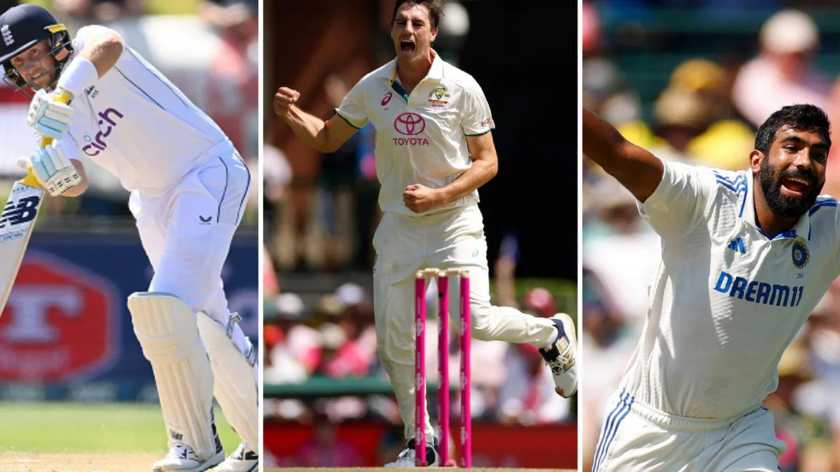
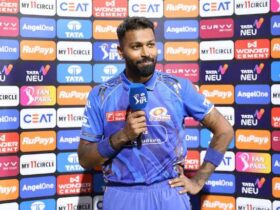


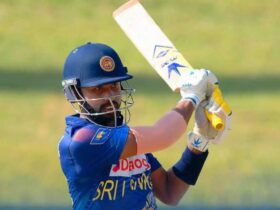

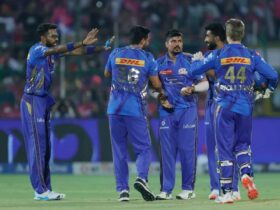

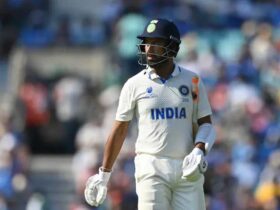

Leave a Reply